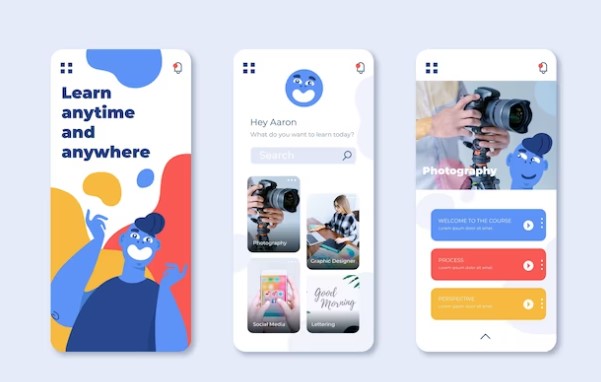In the present digital age, technology has turned out to be an integral part of our day-to-day lives. Particularly, mobile technology and mobile apps have a great role to play. Among the different sectors benefiting from this technology, education is no exception.
Mobile apps related to education have transformed the traditional classroom experience. They offer not only students but also educators with innovative tools for improving learning and teaching. From personalized study plans to interactive classes, mobile apps are reshaping education. They offer effective, engaging, and accessible experiences both for teachers and students.
Advantages of Mobile Apps in Education
Accessibility is one of the key advantages of mobile apps in education. With tablets and mobile phones turning ubiquitous, students these days have access to educational resources anywhere and anytime. Learners can conveniently engage with educational content via mobile apps. They can do this regardless of whether they are commuting to their school or college, relaxing at home, or waiting for an appointment.
The flexibility offered by mobile apps has helped students optimize their learning chances. In turn, they can make the most out of their time. As a result, they can achieve continuous learning beyond the confines of traditional classrooms.
Personalized Learning Experiences
Mobile apps offer customized learning experiences customized to the individual needs of students. Yes, with the help of adaptive learning algorithms, educators can evaluate not only the progress but also the performance of students. As a result, apps can deliver personalized recommendations and content.
Enriching the Learning Process
Above all, mobile apps augment the learning process via multimedia and interactive content. With them, the old-school approach of one-size-fits-all lectures and static textbooks is slowly vanishing. Educational apps use multimedia elements like interactive quizzes, simulations, animations, and videos to make learning more engaging and immersive for students.
By bringing together interactive elements, learners can take part actively in the learning process. They can understand the concepts they learn better visually. Also, they can implement what they have understood via hands-on activities. In turn, they will retain what they learned. This cultivates, creativity, problem-solving, and critical thinking skills that are essential for succeeding in this digital age.
Communication and Collaboration
Also, mobile apps make communication and collaboration easy. It means that students and teachers can interact seamlessly. Many educational apps offer discussion forums, collaborative tools, and virtual classrooms that enable teacher-student interaction and peer-to-peer learning. With this facility, students can collaborate on projects. They can share ideas and get feedback from their instructors and peers in real time. Again, this will improve the learning experience for students.
Wide Range of Learning Materials and Educational Resources
In addition, mobile apps offer a wide range offer a wide range of educational sources and learning materials. Students can get them under different categories or subjects. So, educational apps provide a wide range of learning opportunities that go beyond the confines of traditional textbooks.
